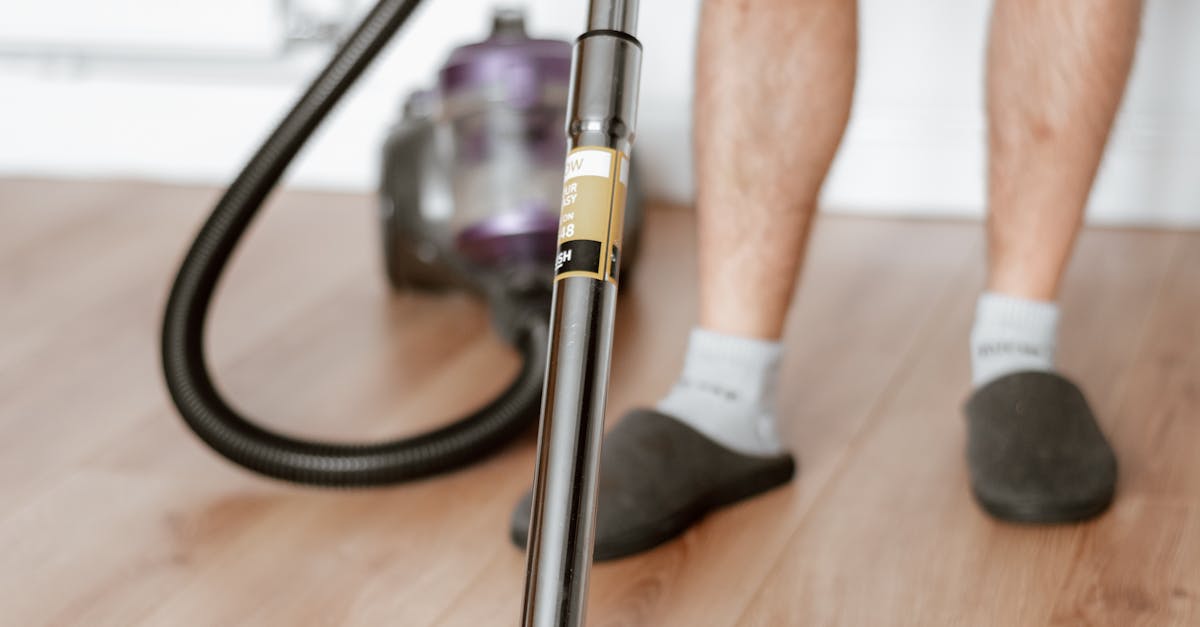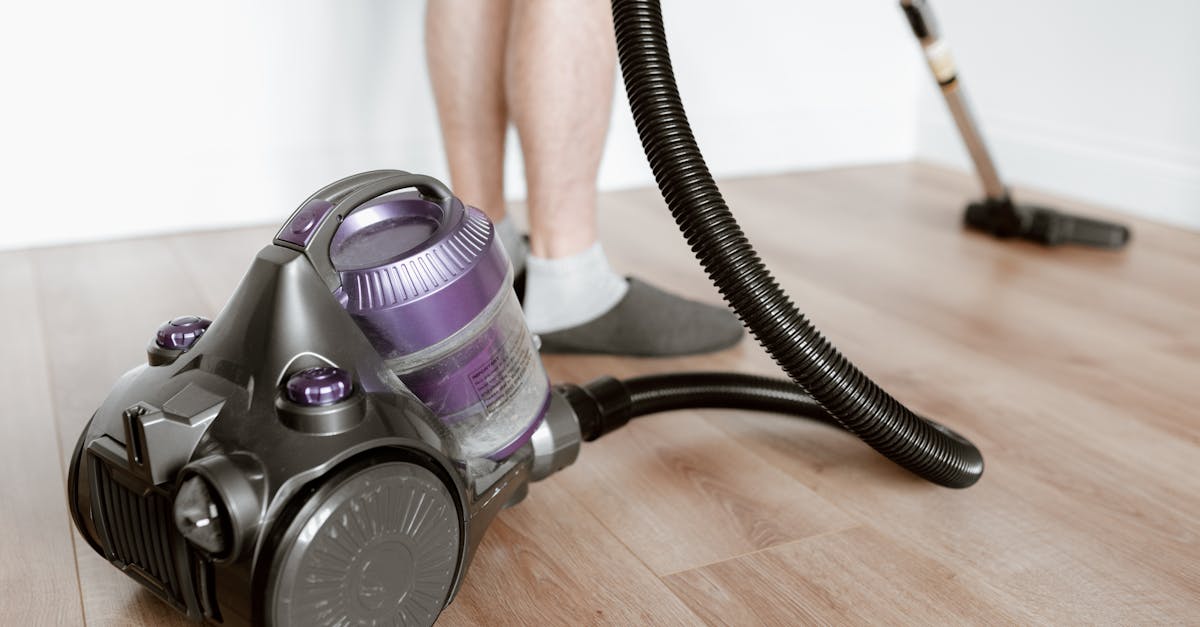
Table Of Contents
Investigating ReliabilityCentered Maintenance
Investigating Reliability-Centered Maintenance involves a comprehensive examination of equipment performance to ensure optimal functionality and reliability. This maintenance strategy prioritizes identifying critical equipment functions to prevent unexpected breakdowns and maximize operational efficiency. Property Maintenance in Cambridge, for instance, can benefit significantly from implementing reliability-centered maintenance by proactively addressing potential issues before they escalate into costly repairs or downtime.
By conducting thorough analyses and risk assessments as part of reliability-centered maintenance, companies can strategically allocate resources to prioritize the maintenance of critical equipment. This proactive approach not only enhances overall equipment reliability but also extends the lifespan of machinery and reduces the likelihood of unexpected failures. In the context of Property Maintenance in Cambridge, adopting reliability-centered maintenance practices can lead to increased tenant satisfaction, improved operational performance, and a more cost-effective maintenance strategy in the long run.
Identifying Critical Equipment Functions
Identifying critical equipment functions is a crucial aspect of property maintenance in Markham. Understanding which equipment functions are pivotal to the overall operation of a system allows maintenance professionals to prioritize their efforts effectively. By pinpointing the essential functions, maintenance teams can focus their resources on ensuring the continuous operation and reliability of these specific components. This targeted approach helps enhance the overall performance and longevity of the equipment, contributing to a smoother operational workflow and reduced downtime.
In property maintenance in Markham, the identification of critical equipment functions involves a detailed assessment of each component's role within the system. This evaluation often includes factors such as the impact of the equipment on the overall production process, safety considerations, and the cost of potential failures. By thoroughly analyzing these critical functions, maintenance professionals can develop proactive maintenance strategies that address potential issues before they escalate. This proactive approach not only helps in maintaining the equipment's reliability but also aids in optimizing operational efficiency and minimizing unexpected breakdowns.
Analyzing Total Productive Maintenance
Analyzing Total Productive Maintenance involves a comprehensive approach to maintenance that focuses on maximizing the overall effectiveness of equipment and processes. In Property Maintenance in Greater Sudbury, this method aims to eliminate waste, improve productivity, and enhance equipment reliability. It emphasizes a proactive maintenance strategy that involves all members of the organization, aiming to foster a culture of continuous improvement.
Implementing Total Productive Maintenance requires a thorough understanding of equipment performance, maintenance processes, and employee involvement. By integrating maintenance activities with production processes, companies in Greater Sudbury can reduce downtime, minimize defects, and optimize resource utilization. Through effective implementation of Total Productive Maintenance principles, organizations can enhance their competitiveness and achieve sustainable growth.
Employee Training and Involvement
Employee training and involvement are integral aspects of ensuring effective property maintenance in Cambridge. Providing comprehensive training programs for maintenance staff equips them with the necessary knowledge and skills to identify and address maintenance issues promptly. Moreover, involving employees in the maintenance process fosters a sense of ownership and accountability, leading to a more proactive approach towards property upkeep and preservation. By encouraging ongoing learning and meaningful participation, property managers can enhance the overall efficiency and effectiveness of maintenance operations in Cambridge.
Employee training and involvement also play a crucial role in promoting a culture of continuous improvement within property maintenance in Cambridge. By empowering employees to contribute their ideas and insights, property managers can tap into valuable expertise and experience on the frontline. This collaborative approach not only leads to innovative solutions for maintenance challenges but also cultivates a sense of teamwork and shared responsibility. Ultimately, investing in employee training and involvement not only enhances the quality of maintenance services but also nurtures a positive work environment conducive to long-term success in property maintenance in Cambridge.
Studying Autonomous Maintenance
Property Maintenance in Greater Sudbury involves the implementation of Autonomous Maintenance practices to ensure the seamless functioning of equipment and machinery. This maintenance approach empowers operators to take full responsibility for the upkeep and minor repairs of their assigned machines. By engaging operators in daily maintenance activities, the overall equipment effectiveness can be significantly improved, leading to enhanced productivity and reduced downtime within the facility. Through rigorous training and clear guidelines, employees become more knowledgeable about the intricacies of the equipment they operate, fostering a sense of pride and ownership in maintaining optimal machine conditions.
Operator-Led Machine Care is a crucial component of Autonomous Maintenance, emphasizing regular inspections, cleaning, and lubrication tasks. This proactive maintenance strategy aims to prevent equipment breakdowns and deterioration, ultimately prolonging the lifespan of assets. By incorporating operator expertise and dedication into the maintenance process, Property Maintenance in Greater Sudbury can achieve higher equipment reliability and performance standards. Autonomous Maintenance not only drives operational efficiency but also fosters a culture of continuous improvement and shared responsibility among employees towards equipment care and maintenance.
OperatorLed Machine Care
Operator-led machine care is a crucial aspect of maintenance strategies in various industries. Employee involvement in routine machine care tasks ensures that equipment remains in optimal condition, minimizing downtime and enhancing overall productivity. In Property Maintenance in Cambridge, empowering operators to take ownership of basic maintenance activities fosters a culture of responsibility and accountability, leading to improved equipment performance and longevity of assets.
By training operators to conduct basic maintenance tasks such as lubrication, cleaning, and minor repairs, organizations in Cambridge can effectively prevent potential breakdowns and costly repairs. This approach not only reduces the reliance on external maintenance teams but also enhances the skills and knowledge of operators, enabling them to troubleshoot issues promptly. Property Maintenance in Cambridge benefits significantly from the implementation of operator-led machine care, as it serves as a proactive measure to maintain equipment reliability and extend its lifespan.
FAQS
What are the 7 types of maintenance discussed in the article?
The 7 types of maintenance discussed in the article are Investigating Reliability-Centered Maintenance, Identifying Critical Equipment Functions, Analyzing Total Productive Maintenance, Employee Training and Involvement, Studying Autonomous Maintenance, and Operator-Led Machine Care.
How can Investigating Reliability-Centered Maintenance benefit an organization?
Investigating Reliability-Centered Maintenance can benefit an organization by focusing on critical systems and equipment, reducing downtime, and improving overall reliability and performance.
What is the significance of Identifying Critical Equipment Functions in maintenance processes?
Identifying Critical Equipment Functions is crucial as it helps in prioritizing maintenance efforts, ensuring that essential systems are given the necessary attention to prevent breakdowns and failures.
How does Analyzing Total Productive Maintenance contribute to enhancing operational efficiency?
Analyzing Total Productive Maintenance helps in maximizing equipment effectiveness, reducing waste, improving productivity, and fostering a culture of continuous improvement within the organization.
Why is Employee Training and Involvement considered important in maintenance strategies?
Employee Training and Involvement are essential as they empower employees to take ownership of maintenance tasks, enhance their skills, and foster a proactive maintenance culture that can lead to better operational outcomes.
What role does Studying Autonomous Maintenance play in maintenance practices?
Studying Autonomous Maintenance involves empowering operators to perform routine maintenance tasks, promoting equipment care and reliability, and reducing dependency on specialized maintenance personnel for minor repairs.
How can Operator-Led Machine Care contribute to the overall maintenance efficiency of an organization?
Operator-Led Machine Care involves operators taking responsibility for the upkeep of their assigned machines, leading to improved equipment reliability, increased operational uptime, and a more streamlined maintenance process.






